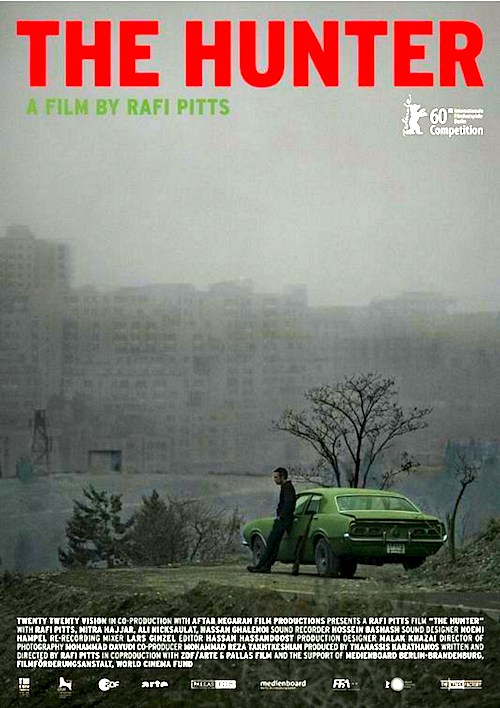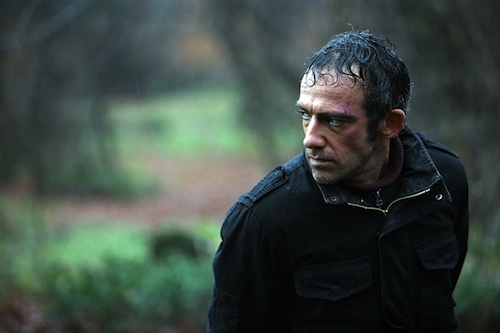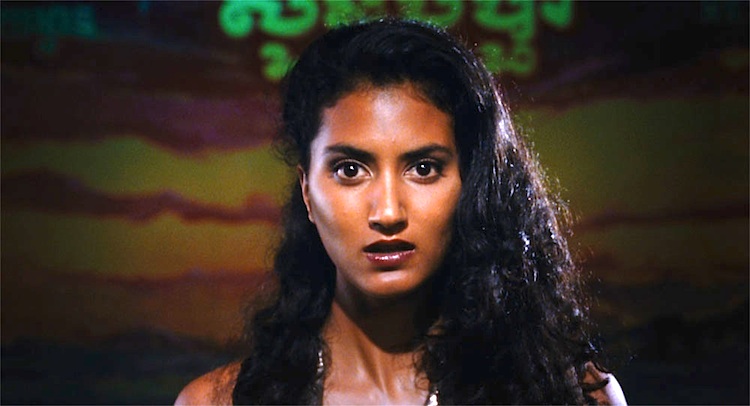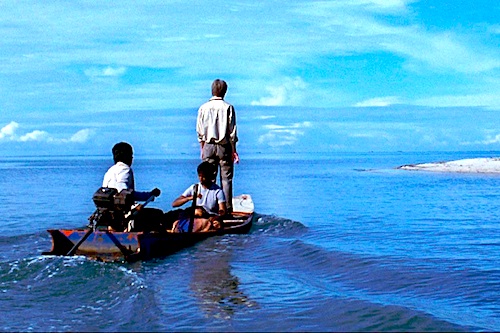 By Joe Bendel. To unwind, Ali Alavi spends his weekends in the forest, relying solely on his hunting rifle to provide sustenance. He is not the sort of man to be toyed with. Indeed, when the repressive Iranian state pushes him to his breaking point, he pushes back in the Iranian-born French-based Rafi Pitts’ quietly incendiary The Hunter (trailer here), which opens this Wednesday in New York at the IFC Center.
By Joe Bendel. To unwind, Ali Alavi spends his weekends in the forest, relying solely on his hunting rifle to provide sustenance. He is not the sort of man to be toyed with. Indeed, when the repressive Iranian state pushes him to his breaking point, he pushes back in the Iranian-born French-based Rafi Pitts’ quietly incendiary The Hunter (trailer here), which opens this Wednesday in New York at the IFC Center.
Alavi is an ex-con, convicted of an unnamed and therefore dubious crime. Forced to work as a late shift security guard, only his reputation as an expert hunter and marksmen affords him a measure of respect from his coworkers. One fateful day, he returns from his hunting trip to find his wife and daughter missing. Over the following weeks, Alavi endures a Kafkaesque nightmare, as the police and various bureaucrats callously keep him waiting hours on end with little or no information.
According to the official story, his wife was killed in the crossfire between the police and so-called “rebels,” as the government refers to the democratic Green movement protestors. It is clear to everyone with eyes that the despised police are responsible, but they refuse to acknowledge culpability. Only the distant hope of finding his daughter keeps the slow-burning Alavi in check. Once her fate is determined, he commits a shocking act of violence Pitts dares viewers to condone.
At this point, Hunter becomes something like a fugitive thriller with more than a touch of the absurd, as two bickering corrupt cops apprehend Alavi in the woods he knows so well, only to get thoroughly lost. It is actually a masterful third act that never goes where you quite expect it to, while remaining true to the grim realities of contemporary Iranian society.

Clearly, Alavi’s hunting is a conscious strategy to maintain his masculine self-worth in an emasculating environment. It also makes him dangerous. With his close-cropped hair, wiry build, steely gaze, and 1970’s sports sedan, Pitts, serving as his lead actor, somewhat resembles an Iranian Steve McQueen (the star of 1980’s The Hunter). He is one bad cat, viscerally intense and totally credible in the action-oriented scenes.
Frankly, there is much we can assume about Alavi from what Pitts implies. The greenness of his car and the décor of his home may or may not be coincidental. Yet, unlike many people we observe on the street, he never seems very optimistic about the 2009 election. Perhaps he has seen this all before and suspects what is coming.
Neither a pure thriller nor strictly a naturalistic social protest film, The Hunter could be considered the Iranian version of the Falling Down (the high-water mark of Joel Schumacher’s career). If not an outright call for violent resistance, it explicitly suggests that the pent-up rage of average Iranians is deep and widespread. It ought to chill the Islamist mullahs to their cores. A genuinely powerful and challenging film, The Hunter marks an excellent start to the New Year. Highly recommended, it opens this Wednesday (1/4) in New York at the IFC Center.
Posted on January 3rd, 2011 at 2:42pm.

